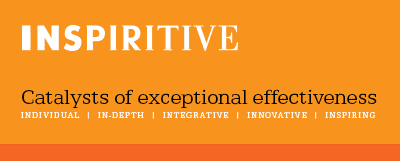Reflective Clinical Supervision Training for FDR Practitioners and Mediators
Clinical Supervision Training for Dispute Resolution Practitioners.
About the Reflective Clinical Supervision Training Course
The Reflective Clinical Supervision Training Course is designed for experienced Family Dispute Resolution Practitioners (FDRPs) and Accredited Mediators who want to expand their capacity to guide, mentor, and support other dispute resolution professionals.
Developed and delivered by Mediation Institute, this program provides a structured pathway to develop professional supervision competencies, grounded in reflective practice, ethical awareness, and practitioner wellbeing.
At the heart of this course is the Tripod Model of Reflective Clinical Supervision, a framework developed by Mediation Institute. It integrates three essential pillars of effective supervision:
Learning – building the mentees knowledge, insight, and capability
Accountability – upholding ethical and professional standards
Wellbeing – supporting reflective resilience and practitioner safety
Advance your skills. Gain recognition. Build confidence as a Reflective Supervisor.

Course Overview
The course is delivered as a 40-hour blended program, combining self-paced study with live interactive learning and applied workplace practice.
Course Components
-
Self-paced eLearning modules introducing supervision theory and the Tripod Model
-
Live online Supervision Circles for collaborative learning and skill application
-
Coaching Clinics for practice, reflection, and personalised feedback
-
Applied workplace or volunteer-based practice with supervision evidence portfolio
-
Statement of Attainment issued on successful completion
Mediation Institute is both a Recognised Training Provider (RTP) and a Recognised Accreditation Provider (RAP) under AMDRAS, supporting practitioners from training through to accreditation and beyond.
Why Reflective Supervision Matters
Supervision plays a critical role in maintaining the quality, safety, and sustainability of mediation and FDR practice.
The Reflective Clinical Supervision Training Course combines the best of reflective supervision (self-awareness, professional learning, and reflective dialogue) with the structured approach of clinical supervision (accountability, evaluation, and ethical oversight).
By completing this course, you will:
Strengthen your ability to conduct safe, structured supervision sessions
Support supervisees’ professional development and emotional wellbeing
Build confidence as a Reflective Clinical Supervisor
Enhance professional standards across mediation and dispute resolution contexts
Pathway and Accreditation
Graduates of the Reflective Clinical Supervision Training Course may use the qualification and skills gained toward:
AMDRAS Advanced Mediator Accreditation
Reflective Clinical Supervisor recognition within the mediation and FDR sectors
Leadership and mentoring roles within dispute resolution and community organisations
This course is ideal for:
AMDRAS Accredited mediators who want to expand into supervision roles.
Family Dispute Resolution Practitioners seeking reflective supervision skills.
- Existing supervisors looking for a competence-based certification to deepen and recognise your skills.
Practitioners looking to contribute to the growth of the mediation profession by supporting the next generation of mediators.

Duration: Self-paced over 6 months
Time commitment: 40 hours
Delivery mode: Fully online.
Price: $2,200 (payment plans available) $1,980 (10% discount for Mi Members)
Corporate Clients: Cohort training is available for groups of six or more suitable learners. 10% discount.

Professional Outcomes
This course will provide you with the skills, knowledge, and confidence in the Tripod Model of Reflective Supervision, developed by the Mediation Institute, to balance supervisees’ Learning, Accountability, and Well-being.
Confident, reflective supervision
Safe, consistent debriefing
Higher professional standards
Nationally recognised Statement of Attainment: CHCMGT005 – Facilitate workplace debriefing and support processes

CHCMGT005 - Facilitate workplace debriefing and support processes delivered in Partnership with
RTO Inspiritive 21178
Reflective vs. Clinical Supervision – Understanding the Difference
| Reflective Supervision | Clinical Supervision |
|---|---|
| Focuses on reflective learning and practitioner insight | Focuses on applied skills, ethics, and quality assurance |
| Encourages professional self-awareness | Provides structured oversight and accountability |
| Often informal or peer-based | Formal and evidence-based |
| Builds emotional resilience | Ensures professional standards and safety |
| Emphasises reflection and growth | Emphasises evaluation and performance improvement |
Mediation Institute’s Tripod Model integrates both reflective and clinical principles, ensuring supervisors develop a holistic and balanced approach.
Learn More – Watch a recording of our Information Session
When will the Course Start?
The next course starts in early 2026 with a series of regular group sessions scheduled from February 2026 onwards.
How long is the course?
The course is delivered as a blend of self-paced online learning and live online sessions. You will have six months of access to the online materials from the date you enrol and can attend any of the scheduled live sessions within that period.
If you are working toward a Statement of Attainment, you will also need to provide evidence of facilitating debriefs and supervision during your enrolment period.
Is prior mediation experience required?
Yes, this course is designed for experienced Mediators and Family Dispute Resolution Practitioners.
If that does not apply to you but you believe that the course is suitable for you please schedule a time to discuss your situation before enrolling.
Learning Outcomes
Facilitate structured workplace debriefing and support processes
Apply a reflective supervision framework prioritising safety, ethics, and clarity
Distinguish the Supervisor (clinical) role from the Team Leader (management) role
Build strong supervisory relationships and maintain professional boundaries
Recognise signs of stress, burnout, and risk—and make referrals when needed
Give effective, evidence-based feedback that lifts practice standards
Use effective supervision and debriefing models appropriately
